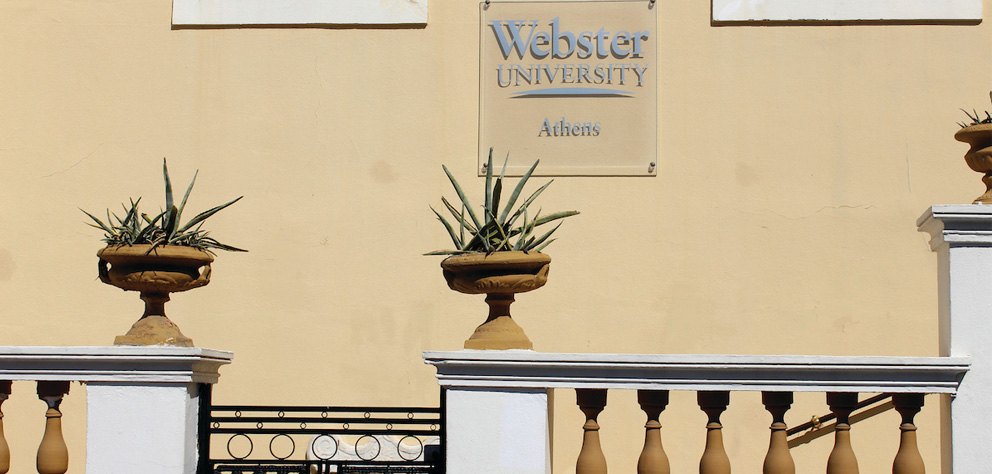First Secretary of Embassy of Georgia Presents Issues of Culture to Webster Athens Students
December 10, 2020
The power of cultural diplomacy, the strong historical friendship and the deep cultural and religious ties between Greece and Georgia were the issues virtually presented to Webster Athens students by the First Secretary of the Embassy of Georgia in the Hellenic Republic, Ani Udzilauri. The lecture on Nov. 12 took place to give depth, relevance and experience in the Webster Athens course on Multicultural Perspectives.
“Cultural diplomacy is not secondary to political and economic diplomacy, but rather functions as an intrinsic and necessary component of it” stated Udzilauri, assistant to the Ambassador of Georgia since 2009 and recently appointed to her current position as First Secretary of the Embassy in April 2020. Having two Master degrees, an MA in Modern Greek Studies and an MA in Greek Ethnography and a rich experience in cultural exchange, Udzilauri has greatly contributed to strengthening mutual understanding, facilitating intercultural communication, and weaving a positive image of the Georgian culture within the Hellenic circles of intellect, society, and life.
As the First Secretary stressed, “culture should be faced as the best instrument for safeguarding the values of a society and its democratization, as a smart tool of soft diplomatic power, which means "the ability to persuade through culture, values and ideas, as opposed to 'hard power, which conquers or coerces through military might."
In unfolding the values and riches of Georgia to Assistant Professor Peggy Manouka and the graduate and undergraduate students of multiple fields, Udzilauri explained: “Georgian culture can be viewed as a mosaic,” as an amalgam of the signs of “the Hellenistic period, the impact of Roman and Byzantine cultures, the links with the Islamic world, the activities on the Holy Land, religious reforms, Proto-Renaissance, Enlightenment, Romanticism, Critical Realism, feminist movement, nationalist ideas, Avant-Garde Art, industrialization, cinema industry, unique opera and ballet culture, post- modern culture…” “The Georgian language and alphabet have also played a decisive role in the determination of the Georgian nation’s identity and the formation of its culture”, stressed Udzilauri while “the living culture of three writing systems of the Georgian alphabet has been inscribed on the UNESCO Representative List of the Intangible Cultural Heritage of Humanity."
Professor and students were impressed with First Secretary’s inspiring lecture and enjoyed the vivid videos created in view of showing the Georgian character, temperament and beauty. “Your lecture filled me with nostalgia” said Marina, a student from Russia, when the discussion of Georgian branding, the ways of promoting the image of the country, the cultural activities of the Embassy of Georgia in Athens, and the century-old cultural ties, ended. And indeed, everybody in the virtual class expressed the desire to visit – or revisit Georgia.

